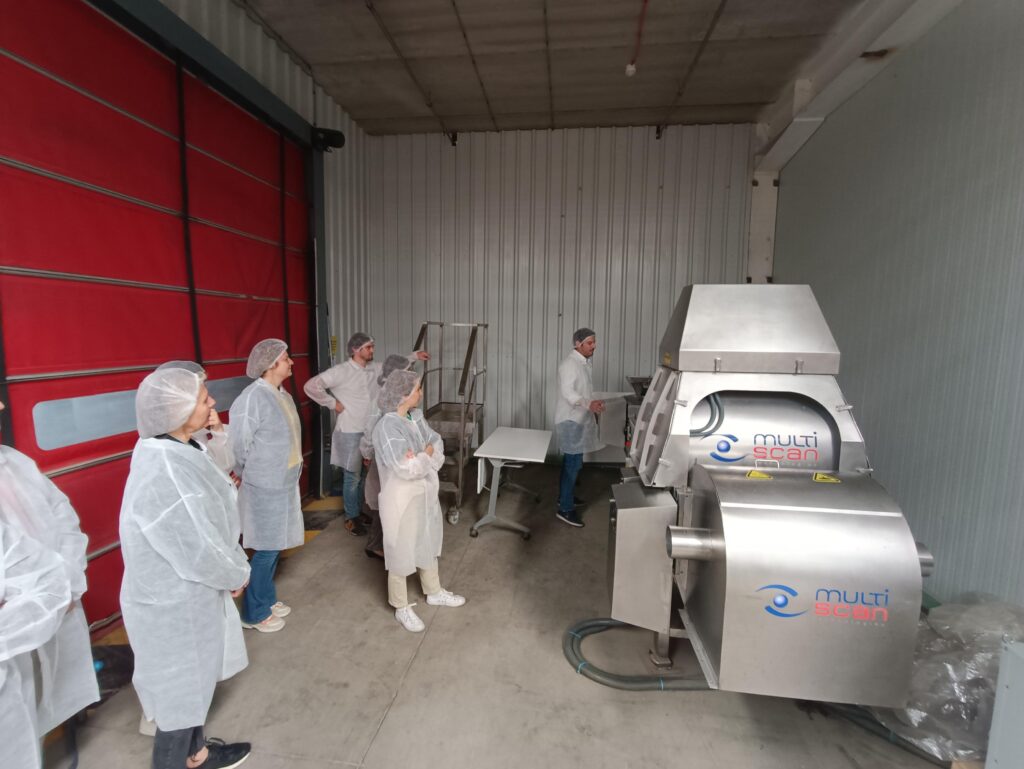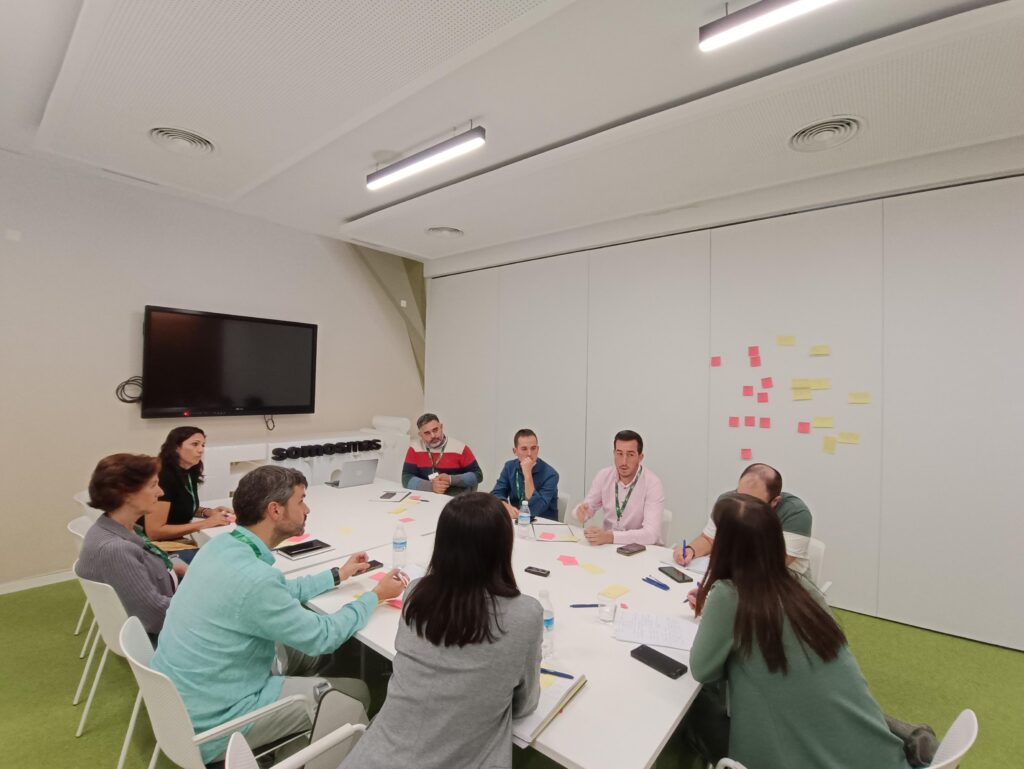The European project ZeroW, of which CTA is a partner, has held two days of workshops at the facilities of Grupo La Caña in Gualchos (Granada) to analyse three technologies under development to combat food waste. On 24th and 25th October, participants from public entities, research centres, universities, companies and clusters were able to learn about three of ZeroW’s nine Systemic Innovation Laboratories (SILLS). The SILLS are open, user-centered innovation ecosystems that propose possible solutions to curb waste at different points in the food chain.
In the workshops, organised by the Flanders Research Institute for Agriculture, Fisheries and Food (ILVO), the participants jointly analysed the barriers and opportunities of these technologies, as well as their market entry possibilities and the impact they would have on food consumption.
On the first day, two technologies under development in the fruit and vegetable and meat industry were analysed. On the one hand, SILL3 was presented, which uses computer vision to monitor the state of tomatoes and their degree of ripeness in greenhouses. This SILL addresses food waste in the pre-harvest phase and is promoted by AgriFood Lithuania DIH. Secondly, SILL6, coordinated by ASINCAR, was exhibited, which deals with the use of NIR (near infrared analysis) technology and data analysis to minimise food waste in the poultry industry.
On the second day, SILL5 on the identification of non-aesthetic foodstuffs was presented. This innovation laboratory, formed by Grupo La Caña, Multiscan Technologies, the Institute for Agricultural and Fisheries Research and Training (IFAPA) and coordinated by CTA, works on the identification and valorisation of non-aesthetic foods, especially cherry tomatoes.


Andalusian technological solution
SILL5, implemented at Grupo La Caña’s facilities in Gualchos, involves the use of VIS-NIR technology to help reduce non-aesthetic food waste by growers and retailers. Its members are developing a multi-sensor platform that could analyse the condition of some 300,000 tomatoes per hour using machine vision and a real-time data processing system. This would allow tomatoes to be separated into different groups in an automated way, according to different parameters.
In addition, the group is testing a portable mass spectrometer that would analyse chemical compounds in tomatoes to discern which samples are organic and which are not.
During the second day of the workshops, attendees were able to see first-hand how the multisensor platform works and ask questions and make suggestions to the SILL5 members. Participants in this co-creation meeting included the Andalusian Ministry of Agriculture, Fisheries, Water and Rural Development, the Andalusian Agricultural and Fisheries Management Agency, the CICAP and CIDAF centres, and the Universities of Granada and Almeria, among others.

